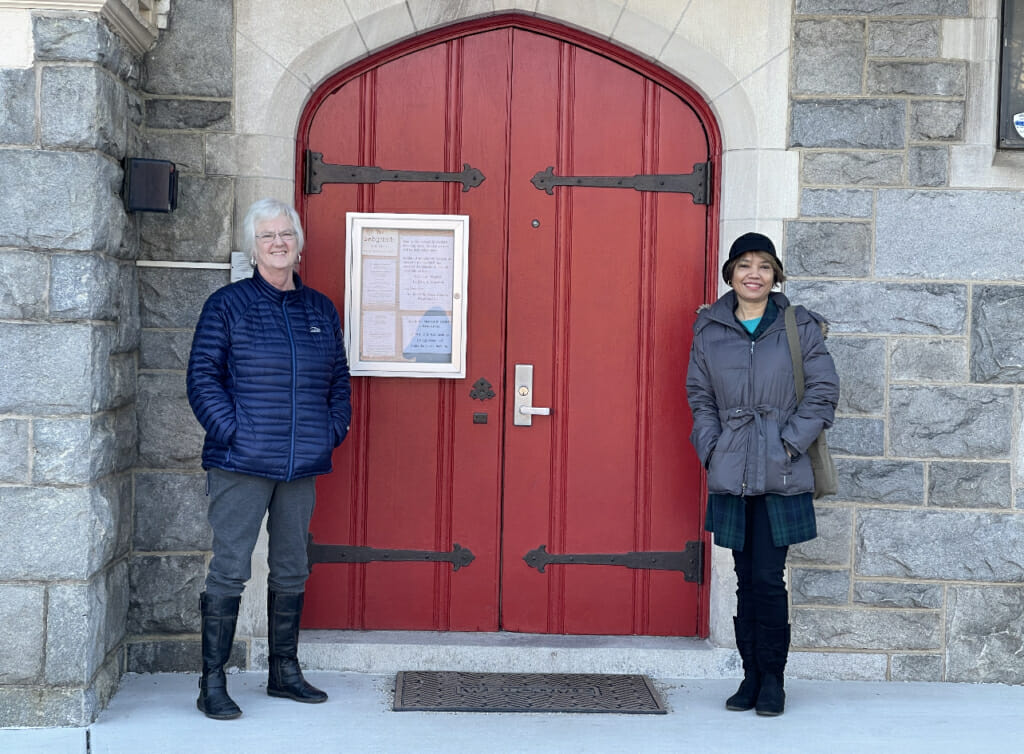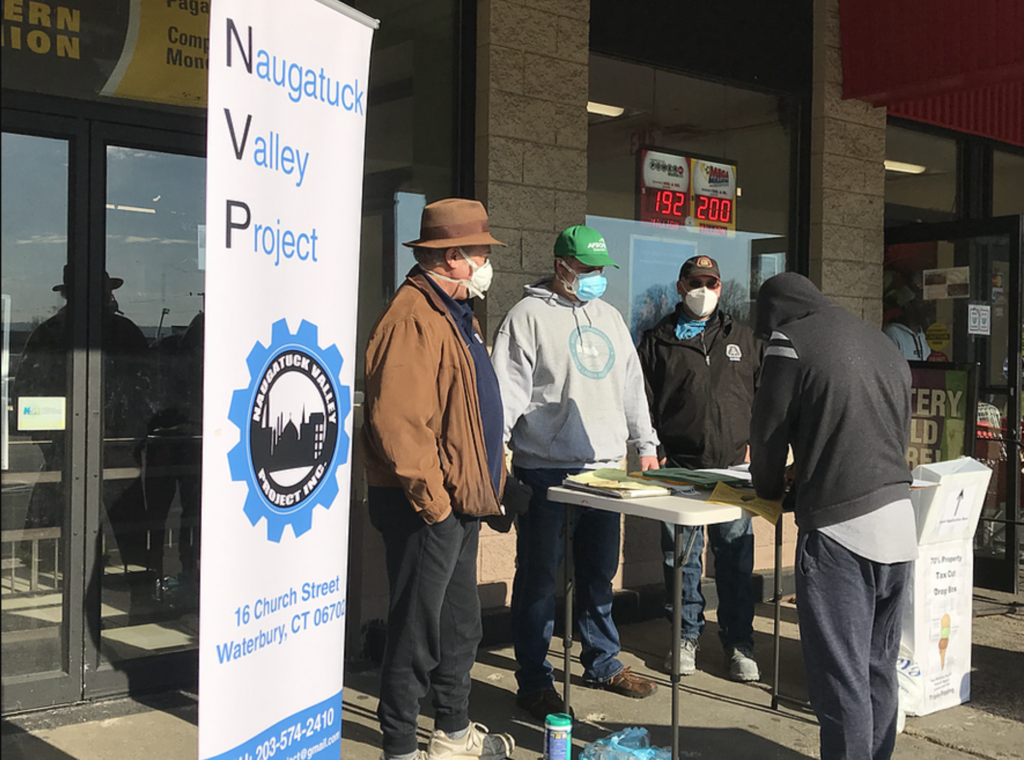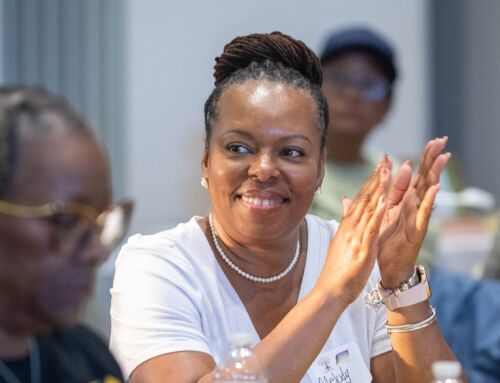
Since 1983, Naugatuck Valley Project (NVP) has pursued social justice through campaigns initiated, organized, and led by low-income communities, working families, immigrants, and people of color. The group—which counts faith communities and labor organizations among its partners and allies— has a long history of initiatives centered on health care, affordable housing, environmental justice, and workers’ rights.
NVP is an advocacy organization that seeks to change systems and policy; it is not a social services provider. But when the pandemic lockdown began in March 2020, the hardships confronting NVP’s own coalition of changemakers—many of whom are domestic and low-wage workers, undocumented families, and people at risk of homelessness—were personal.
NVP’s constituents saw the low-wage jobs on which they depended evaporate. New employment was virtually impossible to find. And many, due to their immigration status, were ineligible for traditional unemployment benefits, supplemental unemployment benefits provided by the federal government, and the federal stimulus payments that helped millions of laid off workers keep their heads above water.
To fill the widening gaps, NVP responded by providing food baskets, at first to just a handful of families. As the need spread, NVP secured first one and later a second grant from the COVID-19 Response Fund to provide weekly food baskets to 25-30 families. They worked with Waterbury Mutual Aid, which had mobilized scores of volunteers to deliver the food and other needed supplies, bringing NVP’s own bilingual volunteers into the Mutual Aid effort. NVP also connected those it was assisting to other organizations that could meet various needs over the longer term.

Participants in the food assistance program experienced the same personal connection, care, and respect that characterizes NVP’s organizing work. One young woman with a small child teared up when her basket arrived with baby food and extra milk. Another individual, who was homeless and who had let a volunteer know that he wasn’t eating enough protein, found his next basket contained tuna, chicken, almonds and fresh fruit, and came with a cooler he could keep. “I have never been treated so personally by a program before,” he told one volunteer. “I can feel the love!”
By July, NVP volunteers learned that many program participants had another looming concern: eviction. At that time, it appeared that Connecticut’s eviction moratorium could end soon. “We had enough cash on hand at the time to offer $100 to each family’s landlord. That was it,” declared Kim McLaughlin, Lead Organizer at NVP. “We were worried that landlords would begin serving our families ‘Notices to Quit,’ the first step in a legal eviction process.” If that happened, tenants would have to pay not only back rent, but also the fees of the person who served the notice, legal fees for document preparation, and court fees.
NVP’s solution was as effective as it was creative. They visited each landlord—usually with the tenant—in order to forge a relationship. They offered $100 or $200 towards the tenant’s rent in exchange for the landlord’s commitment to contact NVP before initiating the eviction process. According to McLaughlin, “Most landlords were friendly, spoke with us about their own pandemic difficulties, expressed their desire to keep the participant as a tenant, and committed to contact us if they were thinking of serving a notice to quit. In only one case was the landlord difficult. NVP was able to assist the landlord’s tenant to find a new place to live.”
True to its organizing roots, NVP has created the opportunity for its food assistance program to lead to change that will last far longer than a food basket. Throughout summer and fall of 2020, NVP brought program participants together to build relationships and share their experiences. Finding common ground as domestic workers and immigrants, the participants create the Comunidad de Trabajadores Domésticos Unidos (Community of United Domestic Workers), a new effort under NVP’s umbrella. NVP has helped members build leadership and advocacy skills they will use to push for passage of a domestic worker bill of rights for Connecticut.
Though NVP’s pivot to food relief may have seemed like a departure from its usual work, the organization was really doing what it does best: bringing people together around shared issues and finding opportunities to advocate for a brighter and more just future.







